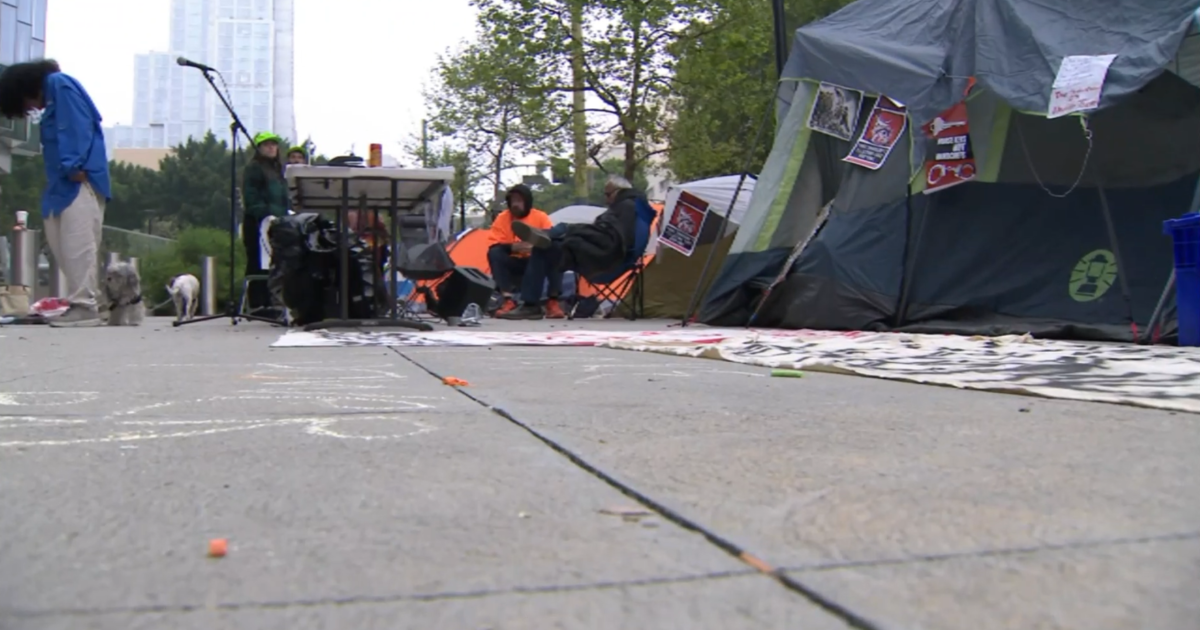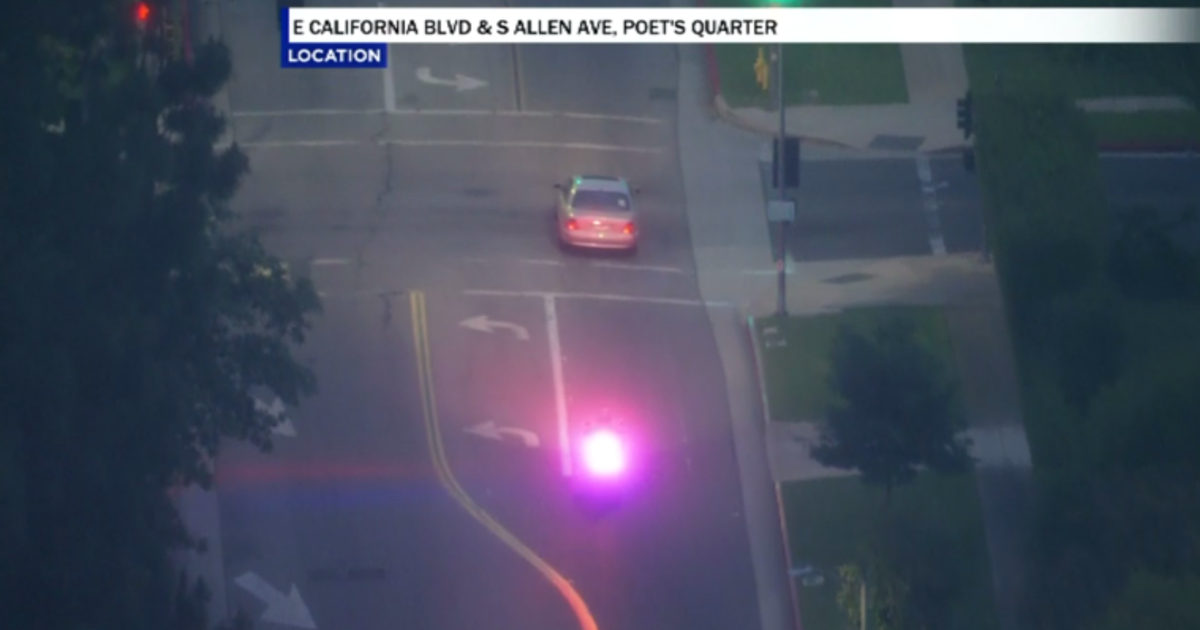Appeals Court Halts Aliso Canyon Restart
LOS ANGELES (CBSLA.com/AP) — Attorneys for the state and SoCalGas have until 6 p.m. Saturday to respond to an appellate court ruling that halts plans to reopen the Aliso Canyon gas storage facility, which has been closed since the largest methane leak in U.S. history temporarily displaced dozens of Porter Ranch residents.
The order late Friday by Associate Justice Lamar Baker of the 2nd District Court of Appeal came after Los Angeles County lawyers unsuccessfully tried to get a lower court to stop Southern California Gas Co. from resuming operations at Aliso Canyon.
The California appeals court judge temporarily blocked the Aliso Canyon facility from reopening, a year and a half after a major blowout spewed methane that drove thousands of families from their homes.
RELATED: The latest coverage on the Aliso Canyon methane leak
State regulators last week gave approval to allow the company to pump gas into underground storage wells after an overhaul and rigorous testing. The county said it feared operations would resume Saturday.
The Aliso Canyon storage facility has been largely out of use since the four-month leak spewed about 109,000 metric tons of methane into the air and led to the temporary relocation of about 7,000 Porter Ranch-area residents. The leak began in October 2015 and was capped in February 2016.
The blowout released the largest-known amount of climate-changing methane in U.S. history. It led to mass complaints of health issues ranging from headaches and nosebleeds to nausea and cancer; issues that persisted after the leak was capped.
The leak occurred in an over 60-year-old well, one of 115 wells at a vacant oil field that was converted in the 1970s to store gas a mile-and-a-half underground where crude oil had been removed. Aliso Canyon is the largest natural gas storage site in the West.
The Los Angeles County Department of Public Health conducted air and dust tests inside more than 100 homes around Aliso Canyon, but found nothing that could explain any long-term health effects from the leak.
The South Coast Air Quality Management District told CBS2 in May that it analyzed chemical levels during random years and found them to be safe.
Attorneys for the county also contend that a detailed seismic-safety study is needed to assess the danger of a large earthquake striking the facility.
According to the California Public Utilities Commission and the state Division of Oil, Gas and Geothermal Resources, the investigation into the cause of the leak is continuing. Regardless of that study, the agencies last week cleared the way for the Southern California Gas Co. to resume injections of natural gas to store at the facility.
The county's effort to keep the facility closed hinges on a claim that the state's extensive safety review had not taken into account the risk of an earthquake from a fault that runs through the field.
In rejecting the county's petition earlier in the day Friday, Los Angeles Superior Court Judge John Wiley said he didn't have authority to overturn orders by the California Public Utilities Commission.
"So what's my power?" Wiley said. "Zero. I have zero power. Because in the 1950s the Legislature said, 'Hands off. The PUC owns this problem.'"
County lawyer Skip Miller disagreed and said the county would file a last-minute request for a stay with the higher court.
"I think your honor is just dead-bang wrong," Miller told the judge. "This is super important to the county of LA and the 30,000 people who live out there."
The county's appeal said it needed to block operations because it was notified the company planned to resume operations Saturday, and if that happened its legal bid would be moot.
Chris Gilbride, a SoCalGas spokesman, said the utility has a few steps to complete before it can resume storing gas and wasn't sure when it would restart.
The state allowed SoCalGas to resume limited operations last week under stricter rules put into effect after the blowout. Fewer than half the 114 wells in the field have passed tests that would allow them to be used.
The county, however, said the state's review didn't adequately address the threat of a strong quake rumbling across the Santa Susana Mountains where the field is located.
"That's a recipe for disaster," Miller said. "We think they're jumping the gun."
The county's legal filing included emails and a declaration from a former SoCalGas manager who raised concerns several years ago about the danger. Jim Mansdorfer, who managed the company's gas storage wells for years, said the Santa Susana fault could rupture all wells and release gas at 100 to 1,000 times the rate of the 2015 blowout.
In response, the state said the facility has likely undergone more scrutiny from a regulatory agency than any facility in the U.S. and the county didn't have a valid claim but could appeal to regulators.
The county's claims are based on "the vague possibility of a future, hypothetical catastrophic earthquake," the state said.
"Fearmongering and heated rhetoric aside, the county fails to allege a legal or factual basis upon which relief, let alone emergency relief, may be granted," Deputy Attorney General Jennifer Rosenfeld said.
SoCalGas echoed the state's arguments in a legal filing. In a letter to politicians and policymakers Monday, it said the county's claims were "baseless and wrong."
The company said it didn't agree with Mansdorfer's opinion, but it had forwarded his concerns to regulators.
While the company and the state have deemed the facility necessary for home heating and to fuel gas-fired power plants, Southern California has avoided predictions of blackouts over the past year while the facility was closed.
Many residents want to see Aliso Canyon permanently shuttered. They have held boisterous protests at the facility's gate, at public meetings and demonstrated in red T-shirts Friday that said "Shut it down."
"It's very scary," Porter Ranch resident Richard Mathews said after the hearing. "So many people are feeling such terrible symptoms from this. People are still getting sick, and if they start the injections, if they increase the pressure 60 percent as expected, it increases the risk to all of us enormously."
(© Copyright 2017 CBS Broadcasting Inc. All Rights Reserved. The Associated Press contributed to this report.)



